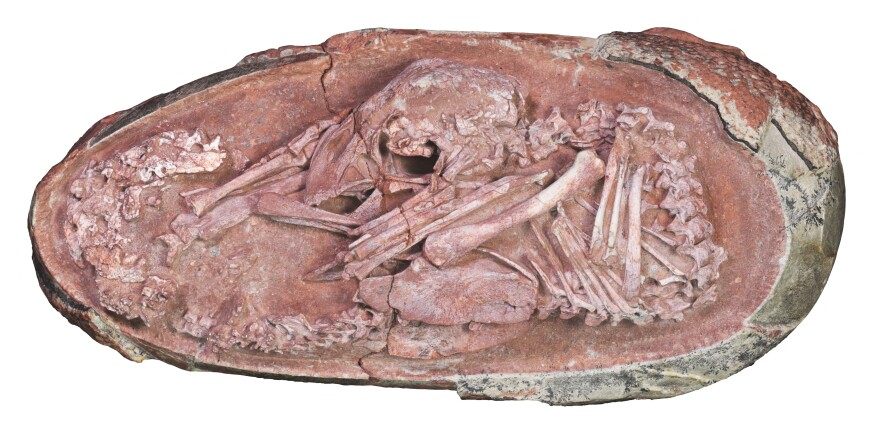A new study examining an embryo from a fossilized dinosaur egg has provided further evidence supporting the notion that modern birds evolved from dinosaurs.
The embryo fossil was discovered in rocks in east China around the year 2000 and housed in the Yingliang Stone Natural History Museum in Fujian Province, where it was dubbed "Baby Yingliang."
Estimated to be 27 cm long from head to tail, the creature lies inside a 17-cm-long egg. Paleontologists believe it belongs to a toothless theropod dinosaur, or oviraptorosaur, dating back 72 to 66 million years, within the Cretaceous Period.
"The embryo fossil 'Baby Yingliang' was discovered in the late Cretaceous stratum located at the southern part of east China's Jianxi Province. The embryo we previously found was not very complete. However, after three years of detailed study by the joint efforts of Chinese, British and Canadian research teams, the embryo we found this time is the best-preserved dinosaur embryo fossil so far," said Liu Liang, curator of the Fujian Provincial Yingliang Stone Natural History.
Oviraptorosaurs are a group of theropod dinosaurs with feathers. They were found in the Cretaceous stratum of Asia and North America and were closely connected with modern birds.
This story originally appeared in the Morning Edition live blog.
Copyright 2022 NPR. To see more, visit https://www.npr.org.



